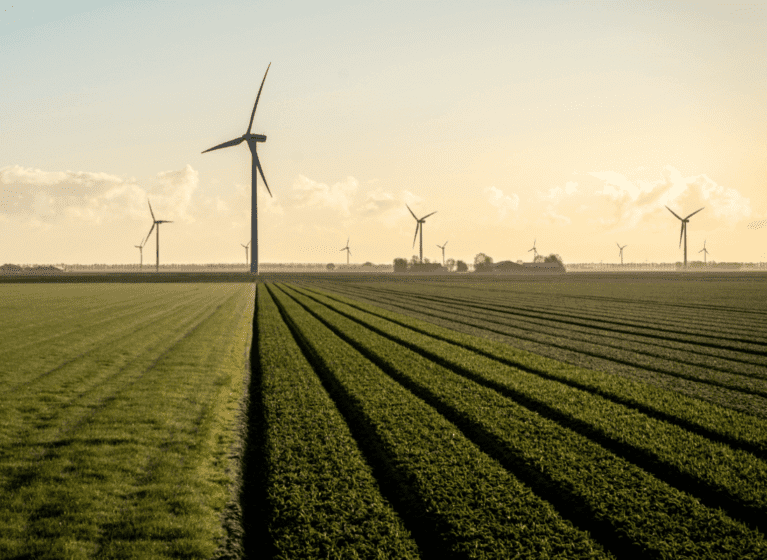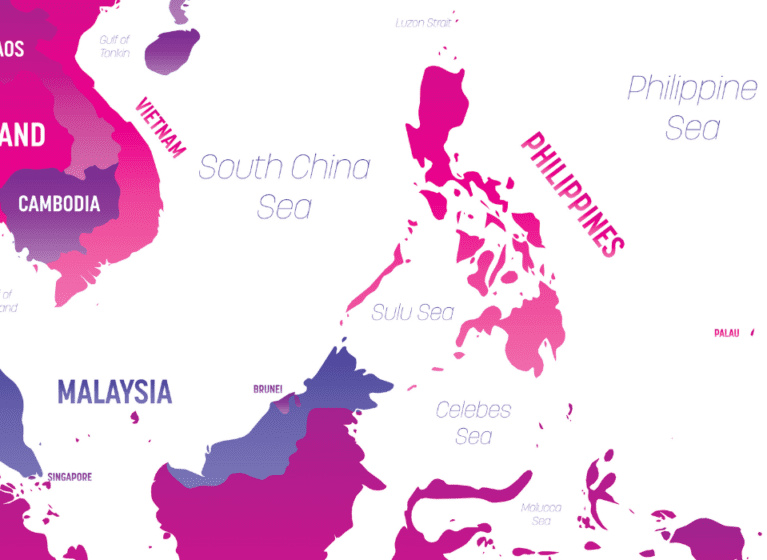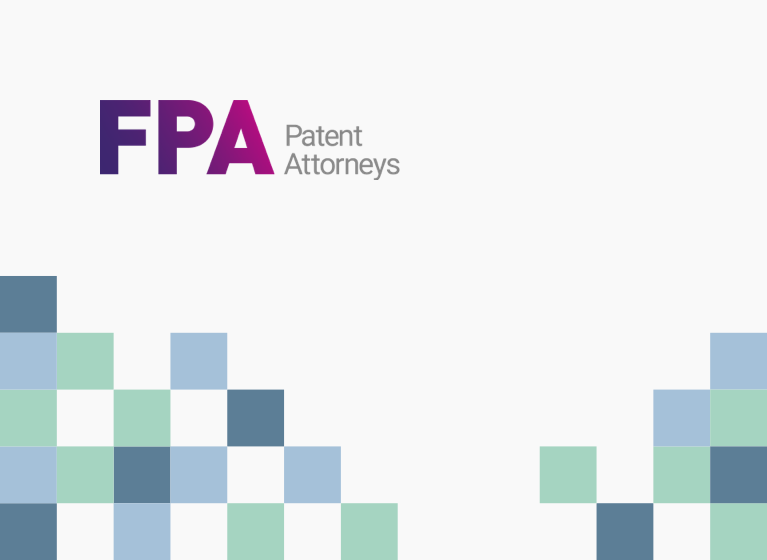Plastic waste is a growing problem. Increasing environmental awareness, international plastic waste import bans, and local bans on exporting plastic are driving the need for innovative ways of dealing with plastic waste, and in particular soft plastic. New requirements for single use plastics, and targets for plastics to be locally recycled, presents an opportunity for the development of new recycling methods, increased use of recycled materials, and new types of packaging. While, globally, there has been a significant increase in patent applications in this space, there has not been a corresponding increase in patent applications in Australia. In this article we explore some of the opportunities and challenges for patenting methods of recycling plastics.
Plastic waste importation bans
The plastic waste problem was brought into focus in 2017, when China announced its waste import ban, effective from 2018. This was followed by complete or partial plastic waste importation bans in Turkey1, Thailand2, India3*, Indonesia4, Malaysia5, and Vietnam6**.
Data published on the Australian Bureau of Statistics website illustrates the scale of the issue, and reports that of the 2.5 million tonnes of plastic waste generated in Australian in 2018-2019, only 9% was sent for recycling7.
Changing requirements for plastics in Australia
In addition to, or perhaps in response to, being required to process plastic waste domestically8, the Australian government passed the Recycling Waste and Reduction Act 2020, which banned export of several waste streams, including plastics9***. As of 2023, all Australian states have committed to ban some single use plastic items, with further restrictions set to commence in 2024 and proposed for 202510. The Australian National Packaging Targets for industry are to have 100% of packaging reusable, recyclable or compostable by 202511, and the Australian government has pledged to recycle all plastics by 204012.
Soft plastics
Soft plastics are difficult to recycle as they are frequently contaminated with food, or made from plastics that are difficult to process13. One best known Australian soft plastic recycler, REDcycle collapsed in 202114, and massive stockpiles of unrecycled plastics were uncovered in its warehouses15. Although there have been recent innovations in alternative packaging material, for example paper based packaging16, soft plastics are still widely used. A 2021 report from the CSIRO on Advanced Recycling estimated that 300,000 tonnes of soft plastic waste are generated in Australia each year17. And in at least the short term, improved means to recycle soft plastic waste appear to be required.
To meet this challenge, increased infrastructure, capacity, and innovation are needed in the waste recycling industry.
The Australian government has identified this as an area requiring investment and has created a $250 million recycling modernisation fund to foster innovation, improve local recycling infrastructure and deliver advanced solutions for hard to recycle plastics18.
Patent trends – indicating opportunities for innovation
An IP landscape analysis report by the CSIRO in 201719 reported a large increase in patent filings from 2011 until 2016, and significant growth in investment in start-up companies dealing with recycling systems and industrial waste management.
The changing commercial and legislative situation for plastics is creating opportunities and demand for innovation. The trend of increasing numbers of patent filings is continuing, with a sharp increase in the number of patent publications, post-2020, directed to plastic or polymer recycling.
The global trend indicated in Figure 1 (closed circles) may be reflective of the waste importation bans, new legislation, as well as changing consumer attitudes towards waste lifecycles, and increasing awareness of the detrimental effects of plastic pollution. However, locally in Australia (open circles), patent publications in this space have not followed the same trend.
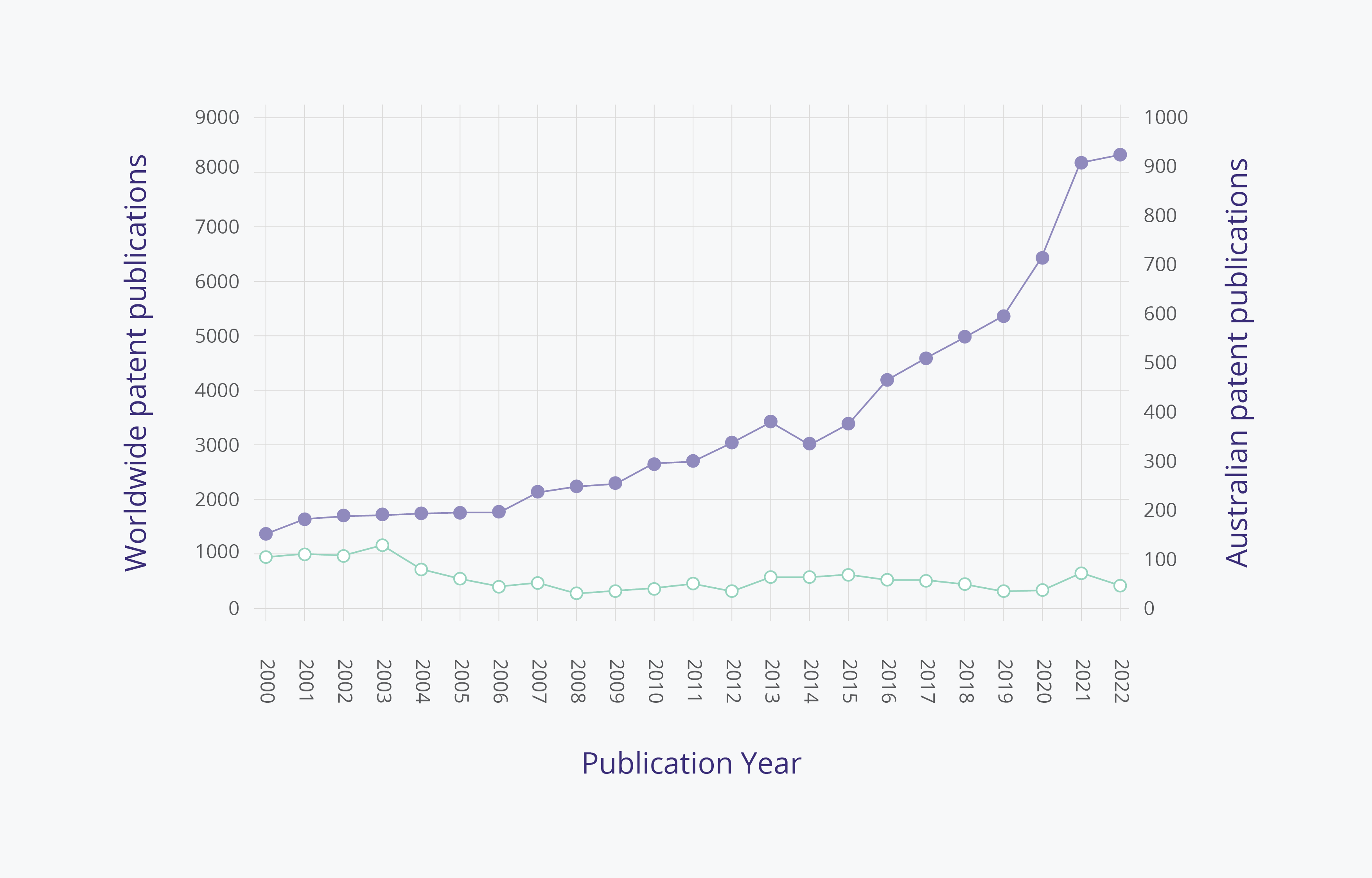
Figure 1: Patent publication trends for applications identified in a Derwent search for global patent publications by patent family where the keywords “plastic” OR “polymer” AND “recycling OR recycle” were used in the abstract, title or index (closed circles, left axis) and Australian standard patent publications (open circles, right axis) identified in the same search. Due to the broad nature of the search, the results likely also encompass loosely related subject matter. It is also noted that there is an 18 month delay in filing of a patent application and its publication.
Furthermore, of the 46 Australian patent publications in 2022, only 3 were filed by applicants based in Australia. As illustrated in Figure 2, the majority of applicants of these patent publications were overseas chemical or energy companies.
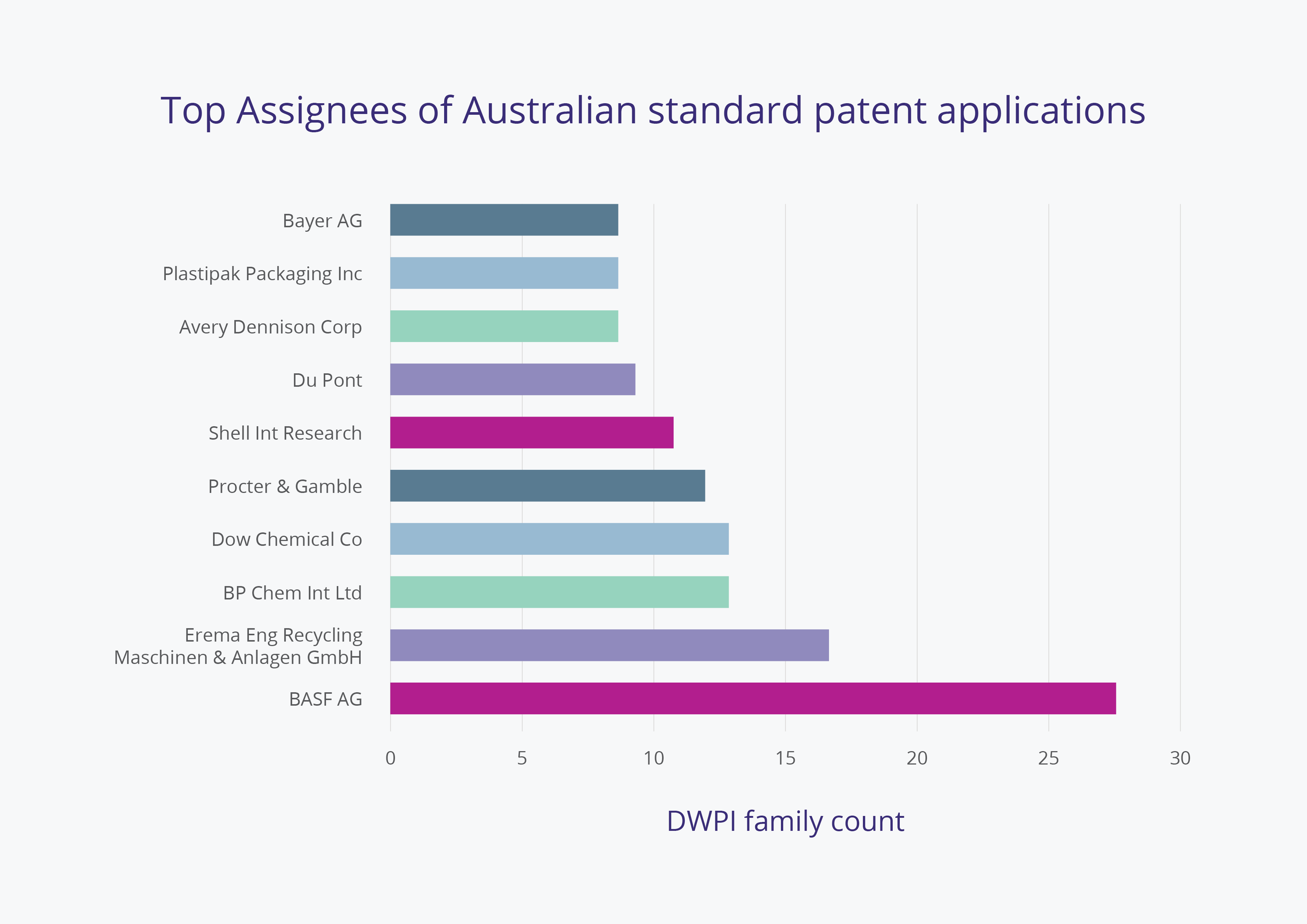
Figure 2: Analysis of the top applicants for Australian standard patent publications identified in a Derwent search where the keywords “plastic OR polymer” AND “recycling OR recycle” were used in the abstract, title or index.
A search of Australian provisional patent application titles for applications filed between January 2020 and August 2023 with the keywords “plastic” or “polymer”, and one of “recycle”, “recycling” or “recycled” in the title identified 6 provisional applications filed in 2020, 6 in 2021, 6 in 2022 and 3 in the first half of 2023. While not an exhaustive search, as not all relevant inventions can be identified from the titles, these numbers are consistent with the relatively flat trend of standard patent applications filed in Australia.
Technology
Recycling soft plastics
Recycling soft plastics is a challenging process, due to their chemical composition and low melting point, requiring specialized recycling facilities that use different techniques to break down and recover the plastic. Trends in soft plastic recycling include the use of one or more of:
- Chemical Recycling – eg. depolymerisation, which breaks down plastic waste into its constituent monomers, or polymer fragments, or dissolution which can separate polymers from other additives within the plastic material, enabling the monomers or polymers to be collected and re-used.
- Pyrolysis – breaking down the plastic into liquid and/or solid components that can be used for other purposes, for example as a fuel to generate electricity or for transportation.
- Enzymatic Recycling – using enzymes to break down plastic waste into its constituent monomers.
- Upcycling – transforming plastic waste into new products.
Patentable subject matter with respect to plastics recycling
Depending on the nature of the invention, and the technology used in the recycling method there may be patentable subject matter relating to:
- new methods of recycling plastic;
- new methods of characterizing and quantifying recycled plastics;
- new materials formed from recycled plastics (upcycling);
- new enzymes used for enzymatic recycling;
- new catalysts for chemical recycling; and
- new types of plastic materials that are advantageous for recycling.
The challenge of patenting in this space
- Inherency: one issue applicants may face when seeking to protect products made from recycled or upcycled plastic waste, is that if the recycled plastic materials are the same as virgin plastic materials, the materials may be considered to lack novelty, or be obvious. However, even in these cases, methods of recycling the plastic and methods of making products from the recycled plastics may still be able to be protected.
- Many recycling processes utilize a combination of mechanical and chemical processes. These types of inventions often require patent attorneys to have multi-disciplinary skill sets and are typically best served through a team approach.
- If the invention is a method, there may be situations in which trade-secrets, or a combination of trade-secrets and patenting will be appropriate. While potentially powerful, this type of combination IP strategy requires careful planning, with a consideration of the relevant legal issues surrounding trade secrets and patents.
We are excited to see what the future holds. Please reach out to the mulitdiscinplinary team at FPA Patent Attorneys to assist you with your innovations in this space.
1 Turkey to ban plastic waste imports | Turkey | The Guardian
2 Thailand to ban plastic scrap imports in 2025, following multiple other Asian countries | Waste Dive
3 * although this ban was relaxed and PET flakes and PET waste may now be imported. Ban now partially lifted – Why India relaxed ban on import of plastic waste | The Economic Times (indiatimes.com)
4 Indonesia sends rubbish back to Australia and says it’s too contaminated to recycle | Environment | The Guardian
5 Climate change: Malaysia, following China, bans plastic waste imports (cnbc.com)
6 Intervention 81835: Vietnam: Import ban on some types of scrap and waste (globaltradealert.org) ** ban is to polystyrene foams and PVC
7 https://www.abs.gov.au/statistics/environment/environmental-management/waste-account-australia-experimental-estimates/latest-release
8 Australia passes first ever national waste legislation – RNY News (recyclingnearyou.com.au)
9 Environment Minister Tanya Plibersek grants exemption for some household plastic waste to be exported – ABC News *** The Australian government recently temporarily relaxed the plastic waste exportation ban due to a lack of local recycling capacity.
10 Which Australian states are banning single-use plastics? – Australian Marine Conservation Society
11 National Plastics Plan 2021 (agriculture.gov.au)
12 Australian government pledges to recycle all plastics by 2040 – ABC News
13 How to manage soft plastic recycling – CSIROscope
14 REDcycle’s collapse is more proof that plastic recycling is a broken system – ABC News
15 More stockpiles of soft plastics from failed REDcycle recycling scheme uncovered | Australia news | The Guardian
16 Mars Australia launches paper-based wrappers: “A nail in the coffin” for flexible plastics (packaginginsights.com)
17 King, S, Hutchinson, SA and Boxall, NJ (2021) Advanced recycling technologies to address Australia’s plastic waste. CSIRO, Australia
18 Investing in Australia’s waste and recycling infrastructure – DCCEEW
19 Locock, KES (2017) The Recycled Plastics Market: Global Analysis and Trends. CSIRO, Australia.



